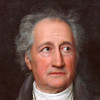“ When a nation, which has long groaned under the intolerable yoke of a tyrant, rises at last and throws off its chains, do you call that weakness? The man who, to rescue his house from the flames, finds his physical strength redoubled, so that he lifts burdens with ease, which, in the absence of excitement, he could scarcely move ”
Johann Wolfgang von Goethe, The Sorrows of Young Werther (1774). copy citation
| Author | Johann Wolfgang von Goethe |
|---|---|
| Source | The Sorrows of Young Werther |
| Topic | weakness excitement |
| Date | 1774 |
| Language | English |
| Reference | |
| Note | Translated by R. D. Boylan |
| Weblink | http://www.gutenberg.org/files/2527/2527-h/2527-h.htm |
Context
“However, I composed myself, for I had often heard the same observation with sufficient vexation; and I answered him, therefore, with a little warmth, "You call this a weakness—beware of being led astray by appearances. When a nation, which has long groaned under the intolerable yoke of a tyrant, rises at last and throws off its chains, do you call that weakness? The man who, to rescue his house from the flames, finds his physical strength redoubled, so that he lifts burdens with ease, which, in the absence of excitement, he could scarcely move; he who, under the rage of an insult, attacks and puts to flight half a score of his enemies, are such persons to be called weak? My good friend, if resistance be strength, how can the highest degree of resistance be a weakness?"”
source


